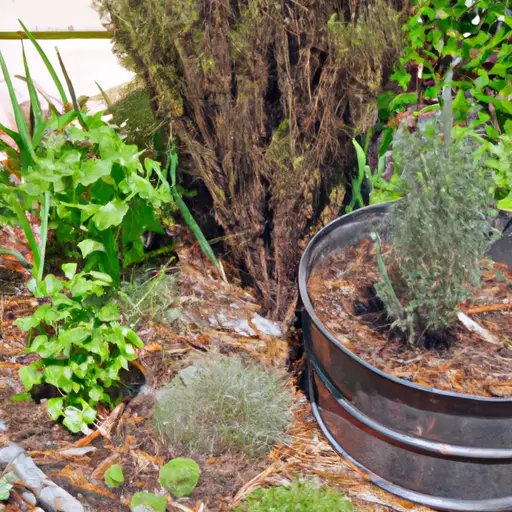Container Gardening: A Green Thumb’s Delight
Gardening is not only a hobby but also a therapeutic activity that allows us to connect with nature and create beautiful spaces. However, if you live in an urban environment or have limited outdoor space, traditional gardening may seem impossible. Fortunately, container gardening is the perfect solution for those seeking a green thumb’s delight in small or unconventional spaces.
What is Container Gardening?
Container gardening is a technique that involves growing plants, flowers, and even vegetables in pots, containers, or other confined spaces. It offers flexibility and allows individuals to cultivate their favorite plants regardless of where they live.
Why Choose Container Gardening?
There are several reasons why container gardening has become increasingly popular in recent years. Firstly, it provides accessibility. Whether you live in an apartment with only a balcony or have limited outdoor space such as a patio or rooftop, container gardening enables you to enjoy the benefits of gardening without needing a large yard.
Secondly, it allows for better control over the environment. By opting for container gardening, you have control over the soil quality, drainage conditions, and exposure to sunlight. This level of control ensures optimal conditions for your plants’ growth and reduces the risks associated with external factors like pests and diseases.
Additionally, container gardening offers mobility. If your plants require specific lighting conditions or need protection from harsh weather, you can easily move them indoors or to different areas of your outdoor space. This flexibility ensures that your plants remain healthy and thriving throughout the year.
Selecting Containers for Your Garden
Choosing suitable containers is crucial for successful container gardening. Containers come in various materials such as terracotta clay pots, plastic pots, wooden boxes, hanging baskets or even recycled items like buckets, crates or barrels.
When selecting containers:
1. Consider the size: Ensure that your chosen containers provide adequate space for root growth. Different plants have different requirements; therefore choose containers accordingly.
2. Evaluate drainage: Containers should have drainage holes to prevent waterlogging, which can be harmful to plants. If your chosen containers lack drainage holes, drill some yourself.
3. Consider aesthetics: Select containers that complement the overall aesthetics of your space. This will enhance the visual appeal of your garden.
The Right Soil Mix
The choice of soil mix is essential for container gardening since it provides essential nutrients and supports healthy root growth. Avoid using garden soil alone, as it tends to become compacted and impedes good drainage.
Instead, opt for a well-draining soil mix made up of equal parts of potting soil, compost or organic matter, and perlite or vermiculite for improved aeration. This combination ensures a fertile growing medium that promotes healthy plant development.
Suitable Plants for Container Gardening
One of the exciting aspects of container gardening is the variety of plants you can grow. Whether you’re into lush foliage, stunning blooms, or fresh edibles, there’s an array of plants suitable for container gardening.
1. Flowers: Popular choices include geraniums, petunias, pansies, marigolds, and impatiens. These vibrant blooms add color and life to any space.
2. Herbs: Herbs like basil, mint, thyme, parsley, and rosemary thrive in containers and provide an abundant supply for culinary uses.
3. Vegetables: Compact vegetables such as tomatoes (dwarf varieties), peppers (miniature varieties), lettuce varieties like ‘Mignonette’ or ‘Tom Thumb,’ and even dwarf fruit trees like citrus trees are all excellent choices for container planting.
4. Foliage Plants: If you prefer lush greenery over flowers or edibles, consider plants like ferns, snake plants (Sansevieria), spider plants (Chlorophytum comosum), or pothos (Epipremnum aureum) which are low-maintenance and add a touch of elegance to any space.
Caring for Your Container Garden
Maintaining a thriving container garden requires attention and care. Follow these guidelines to ensure your plants remain healthy:
1. Water effectively: Containers tend to dry out more quickly, so regular watering is crucial. Ensure the soil is moist but not waterlogged. Check the moisture levels frequently, especially during hotter months.
2. Fertilize regularly: Container plants rely on you for their nutrient intake. Use a slow-release, balanced fertilizer or organic alternatives like compost tea to provide the necessary nourishment.
3. Prune when necessary: Remove dead leaves, spent flowers, or excess growth regularly to maintain plant health and aesthetics.
4. Monitor pests and diseases: Keep an eye out for common pests like aphids, mealybugs, or spider mites. Treat any infestations promptly with organic pest control methods or natural insecticides.
5. Rotate and repot if required: Some plants may outgrow their containers over time, affecting their growth potential. If necessary, replant into larger pots or divide them into multiple containers.
Conclusion
Container gardening provides endless possibilities for individuals with limited outdoor space or urban dwellers looking to connect with nature and create beautiful green spaces of their own. Whether you’re nurturing vibrant blooms, cultivating fresh herbs, or growing your own vegetables, container gardening allows you to embrace your inner green thumb regardless of location.
By selecting suitable containers, using the right soil mix, carefully choosing appropriate plants, and providing proper care and maintenance, you can create a thriving container garden that brings joy and delight year-round. So why wait? Start your container garden today and discover the many benefits this charming hobby has to offer!













